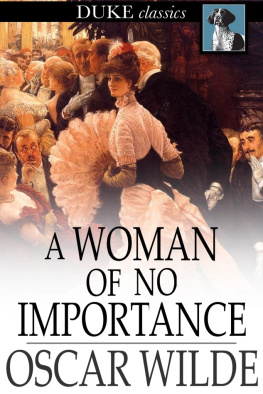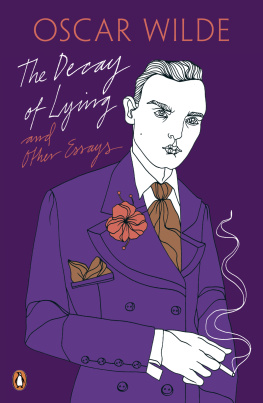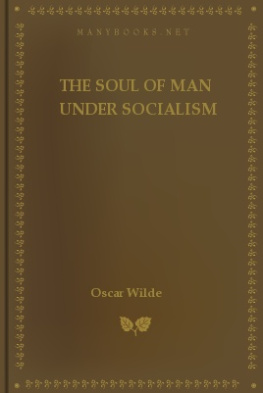Kristian Williams - Resist Everything Except Temptation: The Anarchist Philosophy of Oscar Wilde
Here you can read online Kristian Williams - Resist Everything Except Temptation: The Anarchist Philosophy of Oscar Wilde full text of the book (entire story) in english for free. Download pdf and epub, get meaning, cover and reviews about this ebook. year: 2020, publisher: AK Press, genre: Science. Description of the work, (preface) as well as reviews are available. Best literature library LitArk.com created for fans of good reading and offers a wide selection of genres:
Romance novel
Science fiction
Adventure
Detective
Science
History
Home and family
Prose
Art
Politics
Computer
Non-fiction
Religion
Business
Children
Humor
Choose a favorite category and find really read worthwhile books. Enjoy immersion in the world of imagination, feel the emotions of the characters or learn something new for yourself, make an fascinating discovery.

- Book:Resist Everything Except Temptation: The Anarchist Philosophy of Oscar Wilde
- Author:
- Publisher:AK Press
- Genre:
- Year:2020
- Rating:4 / 5
- Favourites:Add to favourites
- Your mark:
- 80
- 1
- 2
- 3
- 4
- 5
Resist Everything Except Temptation: The Anarchist Philosophy of Oscar Wilde: summary, description and annotation
We offer to read an annotation, description, summary or preface (depends on what the author of the book "Resist Everything Except Temptation: The Anarchist Philosophy of Oscar Wilde" wrote himself). If you haven't found the necessary information about the book — write in the comments, we will try to find it.
Resist Everything Except Temptation: The Anarchist Philosophy of Oscar Wilde — read online for free the complete book (whole text) full work
Below is the text of the book, divided by pages. System saving the place of the last page read, allows you to conveniently read the book "Resist Everything Except Temptation: The Anarchist Philosophy of Oscar Wilde" online for free, without having to search again every time where you left off. Put a bookmark, and you can go to the page where you finished reading at any time.
Font size:
Interval:
Bookmark:

Resist Everything Except Temptation
The Anarchist Philosophy of Oscar Wilde
Kristian Williams
Foreword by Alan Moore

For Emily-Jane,
with gratitude and love
for those whom the gods have given a friend, they have given two worlds
Alan Moore
Here is cognitive dissonance, with the faintest redolence of absinthe: Oscar Wilde and anarchy. How are we to reconcile the privileged aesthetewho reputedly turned everything into an epigram and for whom seriousness was apparently anathemawith the mutable, demanding, and entirely straight-faced doctrines of Bakunin, Proudhon, Godwin, or Kropotkin? Where can we forge a connection between the ideal of each human being as their own sole leader, and the decadent icon whose experience was far removed from that of the working-class youngsters that he favoured, although patently not far enough? Surely, other than in some unlikely parlour-game, there is no reason why the champion of artificiality should share even a sentence with the planets oldest and perhaps most castigated form of politics.
Except that this is far too limited a reading, of both Wilde and anarchy. It denies Wilde the radicalism and furious opposition to authority that is there in everything he ever wrote, and it denies anarchy the largely unacknowledged fierce romanticism that is arguably at its heart. It ignores the passionate manifesto of Wildes The Soul of Man under Socialism and the shocking acid-attacks on Victorian mores that were his comedies, and it refuses to consider modern anarchys emergence, via William Godwin, from an eighteenth-century clique of revolutionary artists, proto-feminists, and writers that included the sublime Romantic visionary William Blake. Such a restrictive view, of serious politics versus frivolous art, leaves anarchy as a purely utilitarian creed with no commitment to the beautiful, while it leaves poetry as no more than a lyrical phantasm without anger, animating fire, or purpose.
That Wilde was born into an aristocracy, through no fault of his own, is greatly mitigated by the fact that he continually strived to bite the hand that fed him. His entitlements were many, his insider status guaranteed, yet he constructed himself as unapologetically, extravagantly other. As Irishman, as social critic, as gay man, and ultimately as convicted criminal and exile, Wilde positioned himself at the edges of his world and times. Deliberately self-marginalised, he sought the outlands of experience, and in this at least is much like Blake, born middle class on Golden Square but following his art and conscience into poverty, and anarchy, and Lambeth. It may be that the Romantic of conviction must be always situated out beyond the regulated limits of civilisations discourse; must seek that abundant wilderness of ideas which encroaches past the thinkable, that she might better see the thing that is her subject, lest the romance be no more than a confection without any purchase on the real. If this unkempt Arcadia outside society is the committed poets natural environment, then anarchy is surely only the implicit ethos of that fertile, teeming, revelatory territory.
It should also be said that Wildes predilection for the lower orders was significantly more than a mere sexual peccadillo, than a humdrum fetishizing of the other, than the fondness for a bit of rough. One cannot without difficulty bring to mind any compelling reason why, after its vicious cruelties and betrayals, Oscar Wilde should feel the least affinity for the entitled class that was his heritage. Conversely, one cannot escape the earnest camaraderie and sympathy he found amongst the other abject souls in Reading Gaol, nor that in his disgracewhen even former kindred spirits such as Aubrey Beardsley feared the taint of their associationit was Leonard Smithers, the reviled lowlife pornographer, who rushed to Wildes assistance with the publication of the authors work in Smitherss admirable The Savoy , a welcome haven after ripples from Wildes trial had grown to the vituperative waves that sank The Yellow Book . It might be that when cast into the depths, into the penitentiary gutters of existence, Wilde discovered them to be already full with stars.
In our present era, in this maelstrom left by the collapse of even a pretended order, with the concept of society unburdened by self-serving, psychopathic leaders looking ever more attractive, the ideas that anarchy provides would seem more useful and more necessary than theyve ever been, but in these austere times we should not let those vital principles take on the colourations of austerity: let anarchy be rich in its imaginings and unashamed of loveliness. If it addresses that which is most ugly in our current cyber-feudalism, in our social structures and their absence of humanity, then let it have an ethical aesthetic that reflects its blazing aura and alluring ideologies. Now that the bowling-ball black bombs with sputtering fuses havent worked, can we admit that it has always been the music, writing, art, and wit of anarchy that were its most efficient tools, its sharpest weapons? And if that should be the case, can anarchy afford to spurn the missile-battery of rhetoric and splendour that is Oscar Wilde? Much better, one would think, that he be in its tent and eloquently pissing out. Much better, for both anarchy and art, that their two pyrotechnic spirits should put by their differences.
In Resist Everything Except Temptation , Kristian Williams argues for that reconciliation with a voice informed by years of patient scholarship yet steeped in absolute compassion. Impeccably reasoned and without a surmise that is unsupported, Williamss powerful hypothesis searches beneath the perfume and the powder of Wildes massively distracting public imagethe elaborate persona he himself constructed, under its obscuring overlay of subsequent opinionto reveal a convinced dissident and radical humanitarian; an anarchist dispensing bullet words from his impressive bandolier vocabulary, whose carefully prepared explosive charges were the verse, the sentence.
This illuminating work rewards Wildes critics and enthusiasts alike, presenting as it does a burning thirst for justice at the core of his extravagant performance and providing serious motive for those never-serious observations, that feigned moral languor. Simultaneously, it invites the modern anarchist to enter into an embracepossibly awkward at the outsetwith a sensual and electrifying soul of poetry that could do more to shift this planet on its listing axis than a thousand upraised fists.
Whether a fop or firebrand, you should make this masterful book your priority.
Alan Moore,
Northampton,
June 16, 2019
Wilde the Philosopher
Oscar Wilde is remembered today chiefly as a wit and a dandy, as a gay martyr, and as a brilliant writer, but his philosophical depth and political radicalism are often forgotten. His plays are still performed, his fiction and poetry still read, his aphorisms often quoted. Yet most people, I think, would be surprised and perhaps a little perplexed to hear him described as a political philosopher.
What we remember of his plays is the humorous dialogue; what we forget is the element of social satire that gives the comedy its bite. Of Wildes character we recall his hedonism; we forget his generous spirit and his abiding sense of kindness. In short, we hold to the surface and neglect the depth (a fitting memorial, it may be said, to a man who always privileged the image over the realityor who seemed to). Wilde preferred a delightful inversion to a careful syllogism, a clever phrase to a sober sermon, and temptations to commandments. His mode of thought was often paradoxical; his mode of expression, ironical; and like Kierkegaard he preferred to indicate his views by an indirect method. None of this should be taken to imply, however, that there is no substance behind the shimmer, no truth within the paradox. It only requires that we should read as Wilde wroteflamboyantly, courageously, with the same ironic detachment, and with the deepest human sympathy. Beneath the ostentatious declarations, the clever lines, and the deliberate absurditiesor perhaps not beneath them, but through themWilde was working out a social theory and a system of values at once ethical, political, and aesthetic.
Font size:
Interval:
Bookmark:
Similar books «Resist Everything Except Temptation: The Anarchist Philosophy of Oscar Wilde»
Look at similar books to Resist Everything Except Temptation: The Anarchist Philosophy of Oscar Wilde. We have selected literature similar in name and meaning in the hope of providing readers with more options to find new, interesting, not yet read works.
Discussion, reviews of the book Resist Everything Except Temptation: The Anarchist Philosophy of Oscar Wilde and just readers' own opinions. Leave your comments, write what you think about the work, its meaning or the main characters. Specify what exactly you liked and what you didn't like, and why you think so.

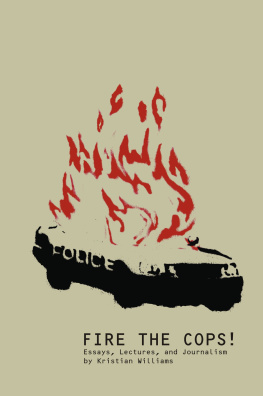
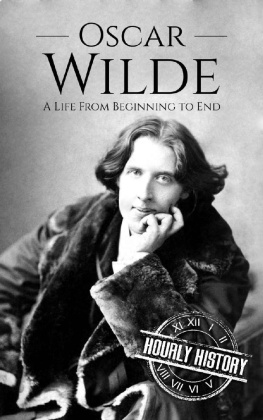
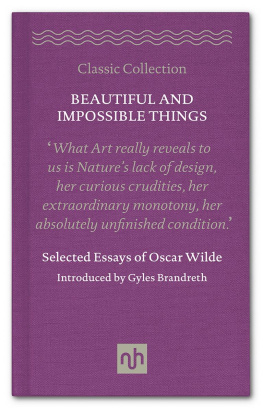
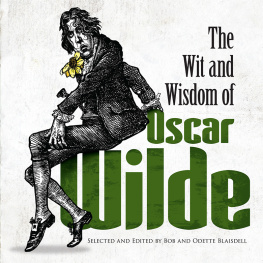
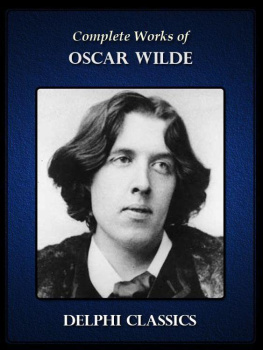
![Wilde Oscar - The secret life of Oscar Wilde: [an intimate biography]](/uploads/posts/book/228457/thumbs/wilde-oscar-the-secret-life-of-oscar-wilde-an.jpg)
